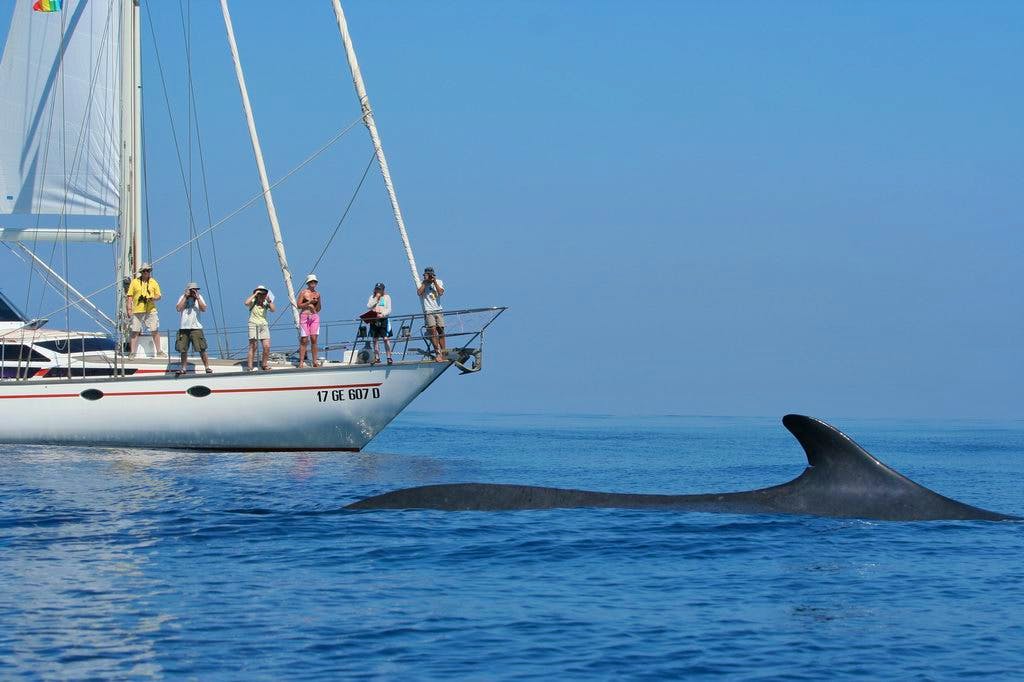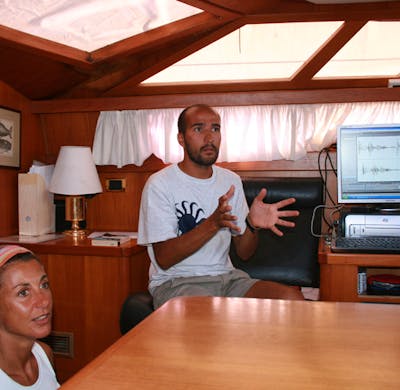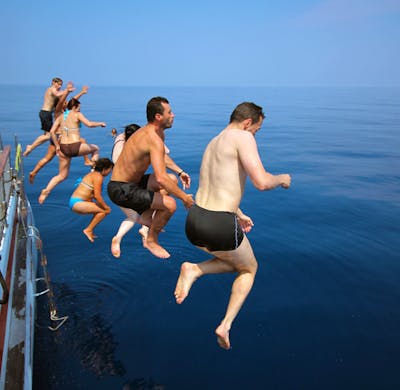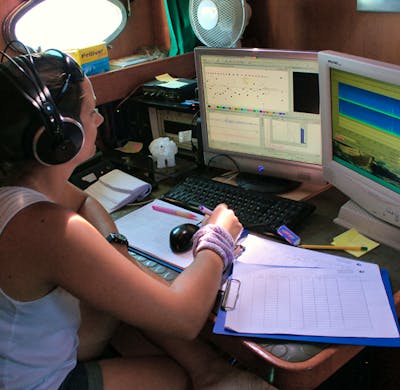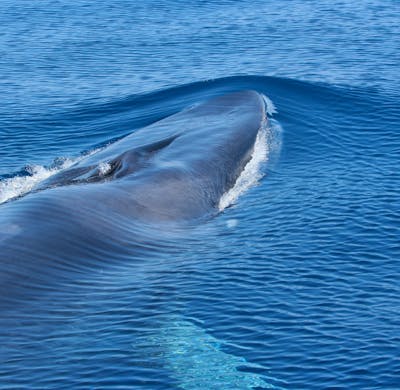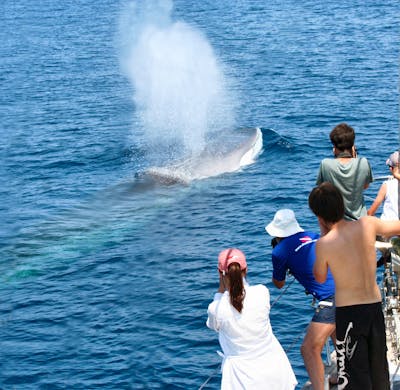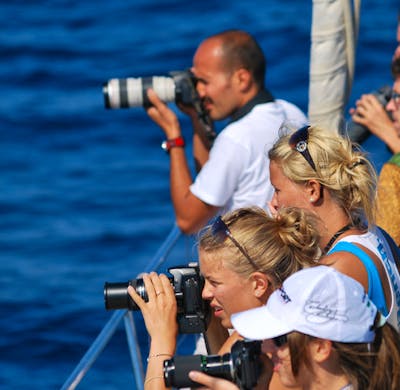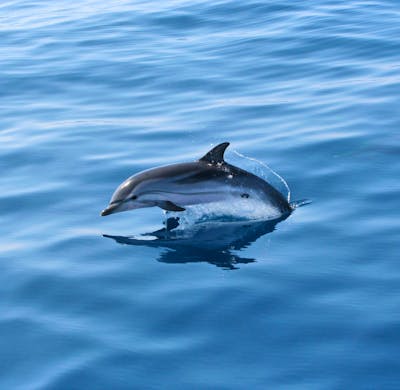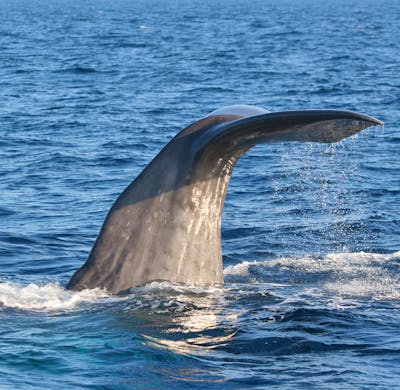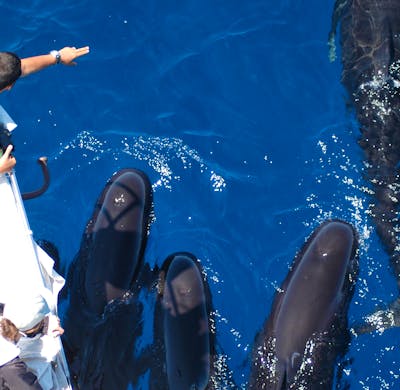2017 at Coastal Dolphin Conservation
a partire da 1.247€
Research Assistant for Cetacean Species
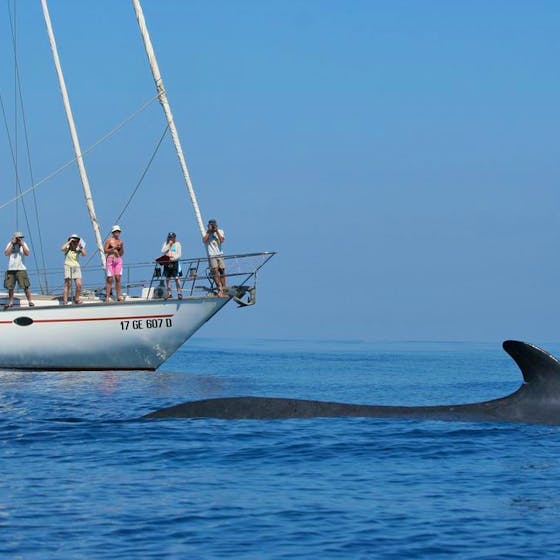
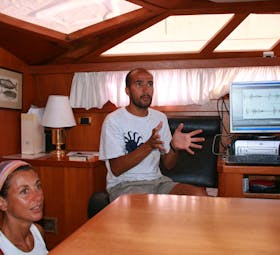
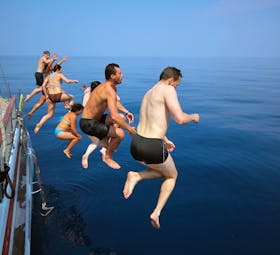
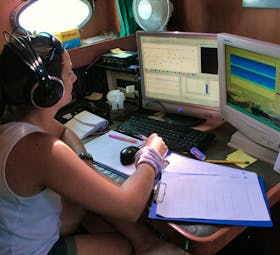
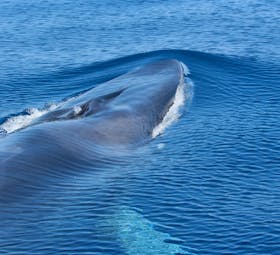
Punti Salienti
- Join us on our long-term project focusing on the ecology, behaviour, feeding habits and conservation of the cetacean species.
- Be part in the conservation of our environment and help us to preserve our treasure!
- Gain experience in marine life conservation!
- Experience life in a vessel!
- Meet fellow volunteers from around the globe!
Particolarmente adatto per
Sul programma
FRom mid May to the end of September participants will be involved in the research on cetaceans living in the vessel "Pelagos sanctuary".
The Cetacean Sanctuary Research (CSR) — established in 1990 — is a long-term project focusing on the ecology, behaviour, feeding habits and conservation of the cetacean species living in the Pelagos Sanctuary. Eight different species of whales and dolphins live in the Pelagos Sanctuary in the ...
Giornata tipica
In a typical day we wake-up between 7:00 and 8:00 AM, depending on circumstances. We will depart after breakfast and spend the day navigating and conducting research. Both researchers and participants will be assigned sighting shifts in order to ensure constant sighting effort. In some ...
Attività del tempo libero
Requisiti
Servizi inclusi
Cosa NON è incluso?
Dettagli all'arrivo
Cruises take place between mid-May and the end of September each year.
Boarding on Monday around 6 pm and disembark on Sunday around 11 am.
Cruises available: 13 May, 20 May, 27 May NOT available, 3 Jun, 10 Jun, 17 Jun, 24 Jun, 1 Jul, 8 Jul, 15 Jul, 22 Jul, 29 Jul, 5 Aug, 12 aug, 19 Aug, 26 Aug, 02 Sep, 09 sep, 16 sep, 23 Sep, 30 Sep, 07 Oct, 14 Oct
The research season is from May to September during the sunny and warm Mediterranean summer when the whales arrives in the area for feeding.
Arrival on Monday afternoon and meeting on board the research boat, ice-breaking session, introduction to the project and presentation of all staff and team members, information about safety measures.
Tue-Sat: Visual and acoustic monitoring during navigation surveys in daylight hours; possible nights spent out at sea in favourable weather conditions; daily lectures.
Young people 16-17 y old can come alone but the parent have to fill and sign specific application forms for the parental consent.
Tariffe del programma
Incontra il tuo ospite
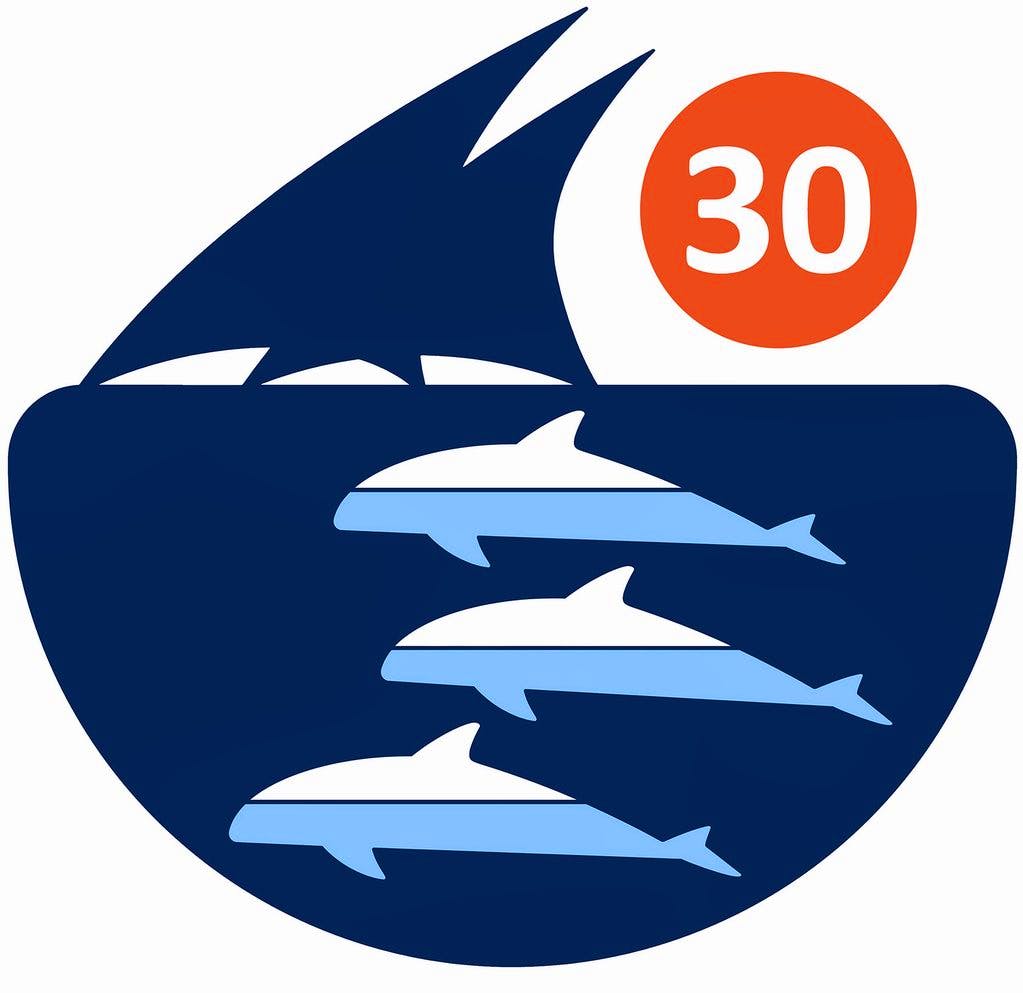
Tethys Research Institute
Non-profit - fondata nel 1991
Verificato da Volunteer World
Ospitato da
Adriana
Sul progetto
8 recensioni ·  4.7
4.7
Posizione

Potreste essere interessati anche a
-
Salvaguardia dei Delfini
Salvaguardia delle Balene
piu dei 50 anni
la tua Famiglia
i grandi 5 marini
Coppia
Progetti all estero
Umanitarie
Gruppo
Adulti
Volontariato in Inglese
dei 18 anni
Mammiferi marini
